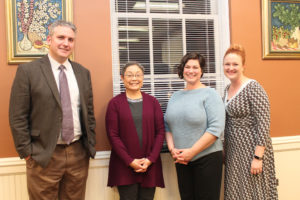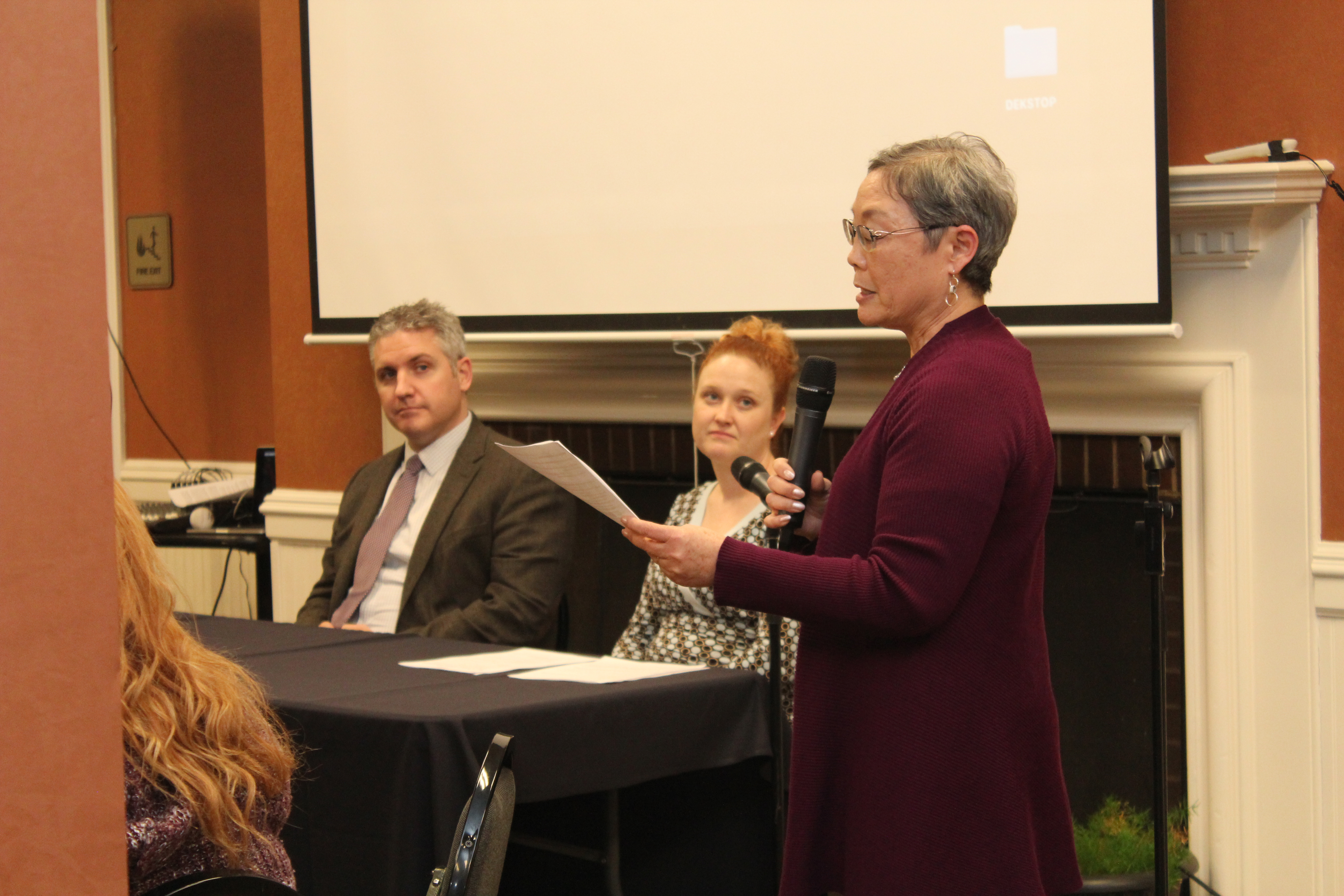That’s what she said: campus program on sexual harassment in the workplace

“That’s what she said” is a phrase people often associate with the inappropriate sex talk of a middle schooler or immature friend. Yet, it sparks the question: what really is sexual harassment, and how do we identify, act on and eliminate it from our lives and workplaces?
In light of the recent #MeToo movement and the themes of the recent school production of “9 to 5: The Musical,” the college had a sexual harassment seminar on Feb. 26 that was geared towards senior women preparing to enter the professional workplace setting. Aimed towards identifying and acting on sexual harassment, the attendees and professors involved came together to share thoughts, opinions and stances on sexual harassment and how to stop it.
The theatre department’s spring musical, “9 to 5: The Musical,” was about three women in the late ‘70s stuck in an office setting with a horrible, abusive boss. These women prevail, but despite the dated musical, the themes still remain incredibly relevant to women’s rights and sexual harassment today.
“We wanted to have a serious conversation about the themes raised in the play—particularly given that the play takes a comedic approach to such serious subject matter,” said Heather McMahon, Associate Professor of Theatre and moderator of the “That’s What She Said” program. “In the wake of the #MeToo movement, it seemed clear that we needed to look for ways to foster conversation about sexual harassment on campus. Moreover, after asking around about what kinds of trainings are offered on campus, we learned that the subject of sexual harassment in the workplace isn’t covered in any of our existing trainings or workshops for students.”
The program was moderated by McMahon as well as Kathie Shiba, Professor of Psychology and Chair of the Behavioral Sciences Division. In addition to the moderators were two guest panelists, Chris McCarty ‘01, practitioner of employment law at Lewis Thomason law firm and Sarah Taylor Yeaple ‘08, assistant director of the Maryville College Career Center. Through their guidance and answers, a long discussion about sexual harassment and how it manifests in the workplace was held.
Carrie Cook, Assistant Technical Director of the Clayton Center for the Arts, ran the technical aspects of the event and took place in the dialogue as well.
“We don’t want to live in a world where you cannot trust anyone at work or not feel comfortable at work,” Cook said. “Conversations like this will hopefully help future generations know their rights and know how to stop the predators and enablers who allow this type of behavior to continue.”
Participants were instructed to ‘trust your gut’, follow your instincts and know what your rights are. McCarty explained that the law intervenes when sexual harassment is severe and pervasive, but that does not mean someone should not report it. Always report sexual harassment, because, chances are, the person being reported has been reported before. Another important tip— you do not have to be the victim in order to report it. Overhearing or seeing sexaul harassment happening to another person can and should be reported.
“I would absolutely encourage anyone who experiences harassment, sees it happen or even overhears it happening to tell someone,” Yeaple said. “The faster the information is shared, the more transparent the process can be. A catastrophic number of victims and witnesses have not reported such instances in the past and continue to not report today. Reacting, reporting and communicating clearly that sexual harassment is NOT okay with you is the best way to improve those numbers and ultimately decrease the number of occurrences in the first place.”
As Maryville College strives to prepare its students for all that post-grad life has to offer, it is important to remember to be prepared for some negative aspects of post-grad life as well. While sexual harassment does not happen to everyone, and most people will end up working with and for great people in their careers, it is still important to keeps programs like “That’s What She Said” at Maryville College so that students have the chance to know what to do if it does happen to them.
“I must admit that I thought our lawyer, Chris McCarty, and our Career Center representative, Sarah Yeaple, made a great team,” McMahon said. “McCarty was able to approach the subject based on what’s legal, while Yeaple was able to give students advice about what is reasonable to expect. I found that combination really informative, and I would hope that we would keep that combination of expertise moving forward.”
The overall atmosphere was one of a positive, non-judgemental group of individuals who felt strongly against sexual harassment and cared about preventing it.
“Being a part of Monday night’s panel was really encouraging to me regarding our faculty, staff and students here at MC,” Yeaple said. “Everyone participated; all were willing to ask questions, get clarifications, learn about others’ experiences and be respectful during that conversation. I am proud to be an MC alum and even prouder to watch current students be vocal about difficult topics and advocate for equality and justice.”
The phrase “If you see something, say something” became one of the simplest, most important parts that everyone agreed on and took away from the meeting. This one, small phrase is the key to making sure sexual harassment always gets reported.
Programs like “That’s What She Said” are successful, and as Cook put it, need to keep happening so that “future generations can stop bad cycles.”

